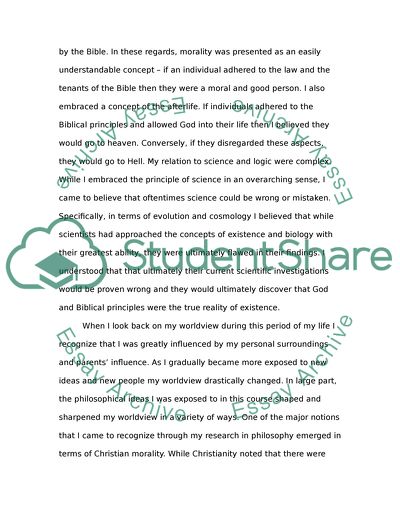Cite this document
(“Worldview as it Relates to Philosophy Research Paper”, n.d.)
Retrieved from https://studentshare.org/philosophy/1426426-examine-your-worldview-as-it-relates-to-philosophy
Retrieved from https://studentshare.org/philosophy/1426426-examine-your-worldview-as-it-relates-to-philosophy
(Worldview As It Relates to Philosophy Research Paper)
https://studentshare.org/philosophy/1426426-examine-your-worldview-as-it-relates-to-philosophy.
https://studentshare.org/philosophy/1426426-examine-your-worldview-as-it-relates-to-philosophy.
“Worldview As It Relates to Philosophy Research Paper”, n.d. https://studentshare.org/philosophy/1426426-examine-your-worldview-as-it-relates-to-philosophy.


